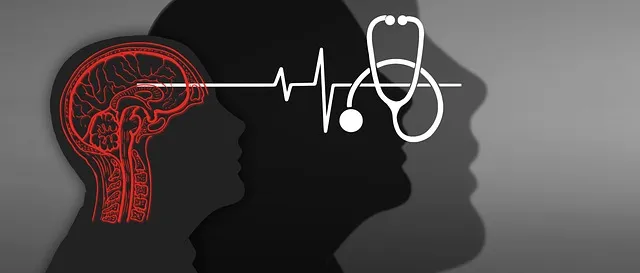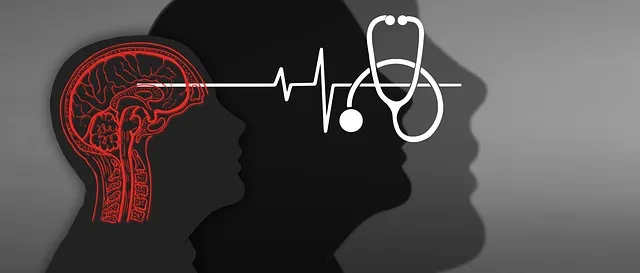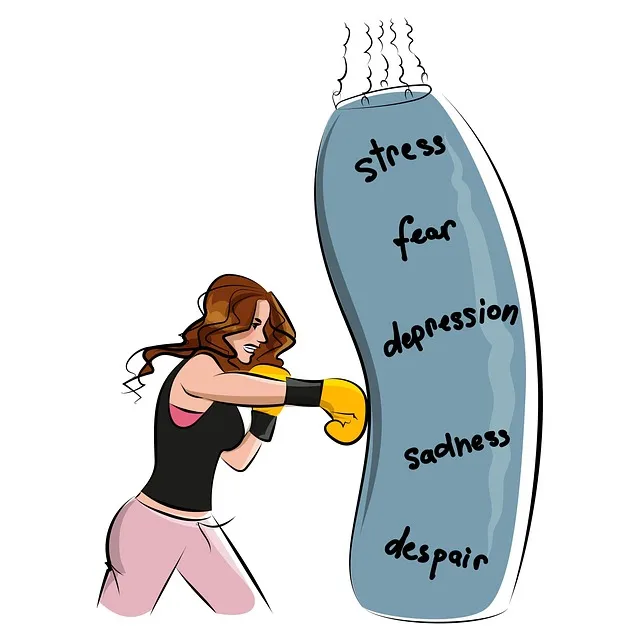Colorado Springs Kaiser Permanente's psychiatric services utilize the Resiliency (RFM) Framework – encompassing Recovery, Flexibility, and Mastery – to boost mental wellness. This structured approach equips individuals with practical tools for navigating challenges, leading to improved resilience and quicker recovery from adversity. Positive outcomes in local psychiatry reviews highlight its effectiveness. By promoting exercises like physical activity, mindfulness, breathing techniques, and journaling, RFM fosters stress reduction, mood improvement, and enhanced life navigation skills. These initiatives not only empower individuals but also shape public awareness campaigns, benefiting both personal and organizational well-being.
“Resilience is a powerful tool for navigating life’s challenges. The RFM (Recovery, Flexibility, and Mastery) model offers a comprehensive framework to build mental fortitude. This article explores how Colorado Springs Kaiser Permanente Psychiatry Reviews plays a pivotal role in promoting resilience through evidence-based practices. We delve into effective exercises and strategies, demonstrating their integration into wellness programs with remarkable success stories. Discover how these approaches are transforming lives, providing valuable insights for those seeking enhanced mental health support.”
- Understanding RFM: A Framework for Resilience
- The Role of Colorado Springs Kaiser Permanente Psychiatry Reviews in Mental Health Support
- Building Resilience: Exercises and Strategies
- Integrating RFM into Mental Wellness Programs
- Success Stories: Real-Life Impact of Resilience Training
Understanding RFM: A Framework for Resilience

In the heart of Colorado Springs, Kaiser Permanente’s psychiatry services have been instrumental in promoting mental health awareness and fostering resilience among their patients. At its core, RFM—a framework for resilience building—is a powerful tool that helps individuals navigate life’s challenges with greater equanimity. Resiliency, as defined by Kaiser Permanente’s experts, is the ability to adapt positively after experiencing adversity, and RFM provides a structured approach to cultivating this vital skill.
By focusing on three key components: Recovery, Flexibility, and Mastery (RFM), this framework offers practical empathy building strategies that empower individuals to rebuild their lives following traumatic events or significant setbacks. In the context of Colorado Springs Kaiser Permanente psychiatry reviews, patients often praise these exercises for enhancing mental wellness and promoting a deeper understanding of personal resilience. Through RFM, individuals learn to recover from adversity quickly, adapt to change with flexibility, and take control of their lives by mastering challenges rather than being overwhelmed by them.
The Role of Colorado Springs Kaiser Permanente Psychiatry Reviews in Mental Health Support

Colorado Springs Kaiser Permanente Psychiatry Reviews play a pivotal role in the region’s mental health support ecosystem. These reviews act as a beacon for individuals seeking specialized psychiatric care, offering insights into the quality and effectiveness of services provided by the healthcare network. By meticulously evaluating various aspects of patient experiences and treatment outcomes, these reviews contribute to an informed decision-making process for both patients and healthcare providers.
Beyond their evaluative function, Colorado Springs Kaiser Permanente Psychiatry Reviews serve as a valuable resource for shaping mental health education programs and designing evidence-based interventions. The insights derived from these reviews guide the development of robust Mental Wellness Coaching Programs, ensuring they address the unique needs of the community. This proactive approach not only bolsters resilience building but also fosters a culture of open dialogue and mental wellness coaching, ultimately enhancing the overall well-being of Colorado Springs residents.
Building Resilience: Exercises and Strategies

Building resilience is an essential aspect of maintaining good mental health, and various exercises can help individuals develop this crucial skill. At Colorado Springs Kaiser Permanente, psychiatry reviews highlight the importance of resilience in fostering overall well-being. One effective strategy is engaging in regular physical activity, such as walking, running, or yoga, which has been shown to reduce stress levels and improve mood. This not only strengthens the body but also provides a mental sanctuary where individuals can clear their minds and cultivate a sense of calm.
Community Outreach Program Implementation plays a vital role in promoting resilience-building initiatives. Workshops focused on mindfulness meditation, breathing exercises, and cognitive reframing techniques can empower people to navigate life’s challenges more effectively. Additionally, Mental Wellness Journaling Exercises offer a powerful tool for self-reflection and emotional processing. Guidance through these exercises encourages individuals to identify triggers, process difficult emotions, and develop healthy coping mechanisms, ultimately enhancing their ability to bounce back from setbacks and maintain mental wellness, as supported by Kaiser Permanente psychiatry reviews.
Integrating RFM into Mental Wellness Programs

Incorporating RFM (Resilience, Flexibility, and Mindfulness) techniques into mental wellness programs has gained significant traction, especially in renowned healthcare institutions like Colorado Springs Kaiser Permanente, as evidenced by positive psychiatry reviews. These exercises are instrumental in enhancing individuals’ resilience to stress, a crucial aspect of overall well-being. By integrating RFM, mental health professionals can offer comprehensive care that goes beyond traditional therapy. This approach allows patients to develop effective coping strategies, fostering better mood management and emotional regulation.
The inclusion of RFM in psychiatry treatments benefits not only individuals but also contributes to public awareness campaigns development. Educating the community about resilience-building self-care routines for better mental health can reduce the societal burden of mental illnesses. Through such initiatives, people can learn to navigate life’s challenges more effectively, leading to improved overall mental wellness.
Success Stories: Real-Life Impact of Resilience Training

Resilience training has proven to be a game-changer for many individuals, as evidenced by success stories across various sectors. In Colorado Springs, Kaiser Permanente’s psychiatry department has witnessed remarkable outcomes through their comprehensive programs. These initiatives, often including stress management workshops and organization-wide resilience building exercises, have not only enhanced employee well-being but also improved overall productivity and job satisfaction.
The impact of these resilience-focused efforts extends beyond the workplace. Participants report better coping mechanisms for dealing with life’s challenges, leading to improved mental health and reduced stress levels. This shift in mindset empowers individuals to navigate difficult situations with greater ease, fostering a sense of empowerment and self-efficacy. The positive feedback from Kaiser Permanente’s psychiatry reviews highlights the power of such interventions, inspiring other organizations to prioritize resilience building as a key strategy for employee support and personal growth.
The integration of the Resilience, Flexibility, and Motivation (RFM) framework, coupled with the expertise provided by Colorado Springs Kaiser Permanente psychiatry reviews, offers a powerful approach to building mental resilience. By employing evidence-based exercises and strategies outlined in this article, individuals can enhance their ability to navigate life’s challenges and foster long-term well-being. The success stories shared highlight the profound impact of resilience training, underscoring its potential to transform lives and communities, with Colorado Springs Kaiser Permanente playing a pivotal role in mental health support.






